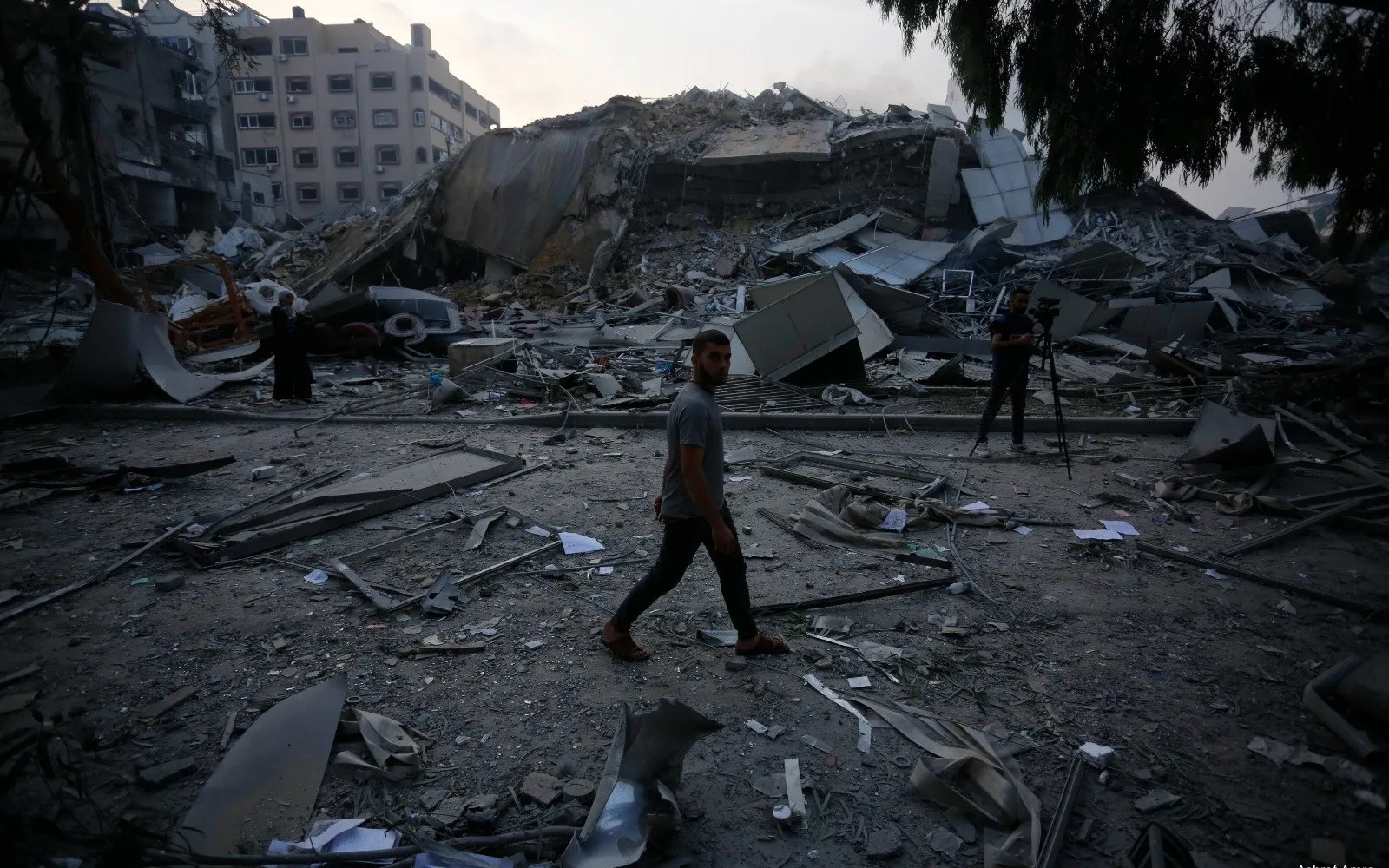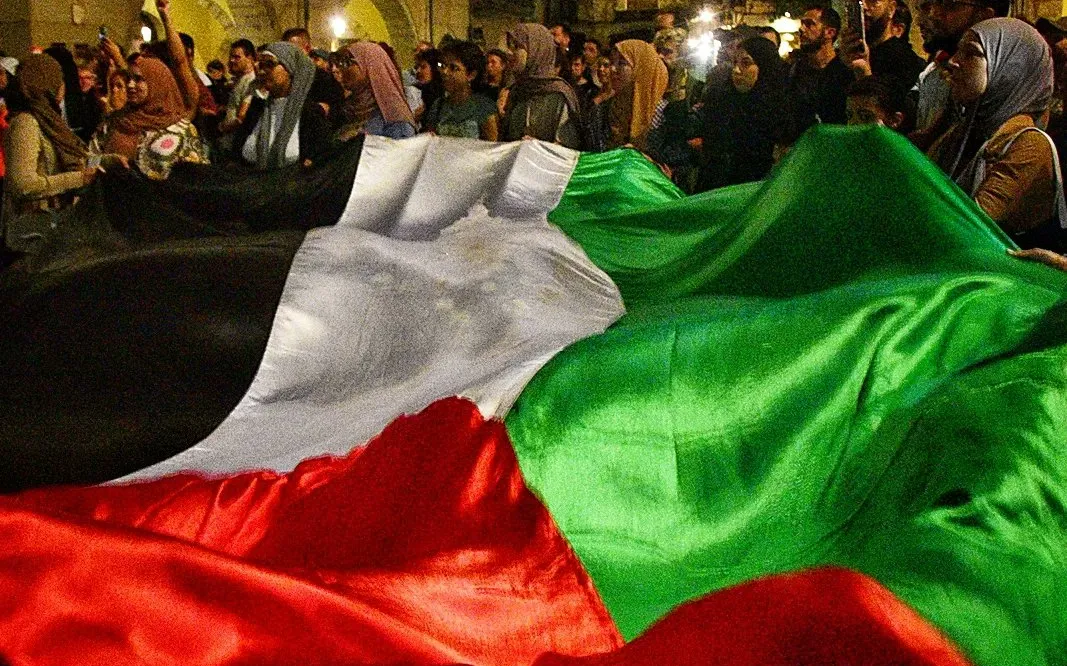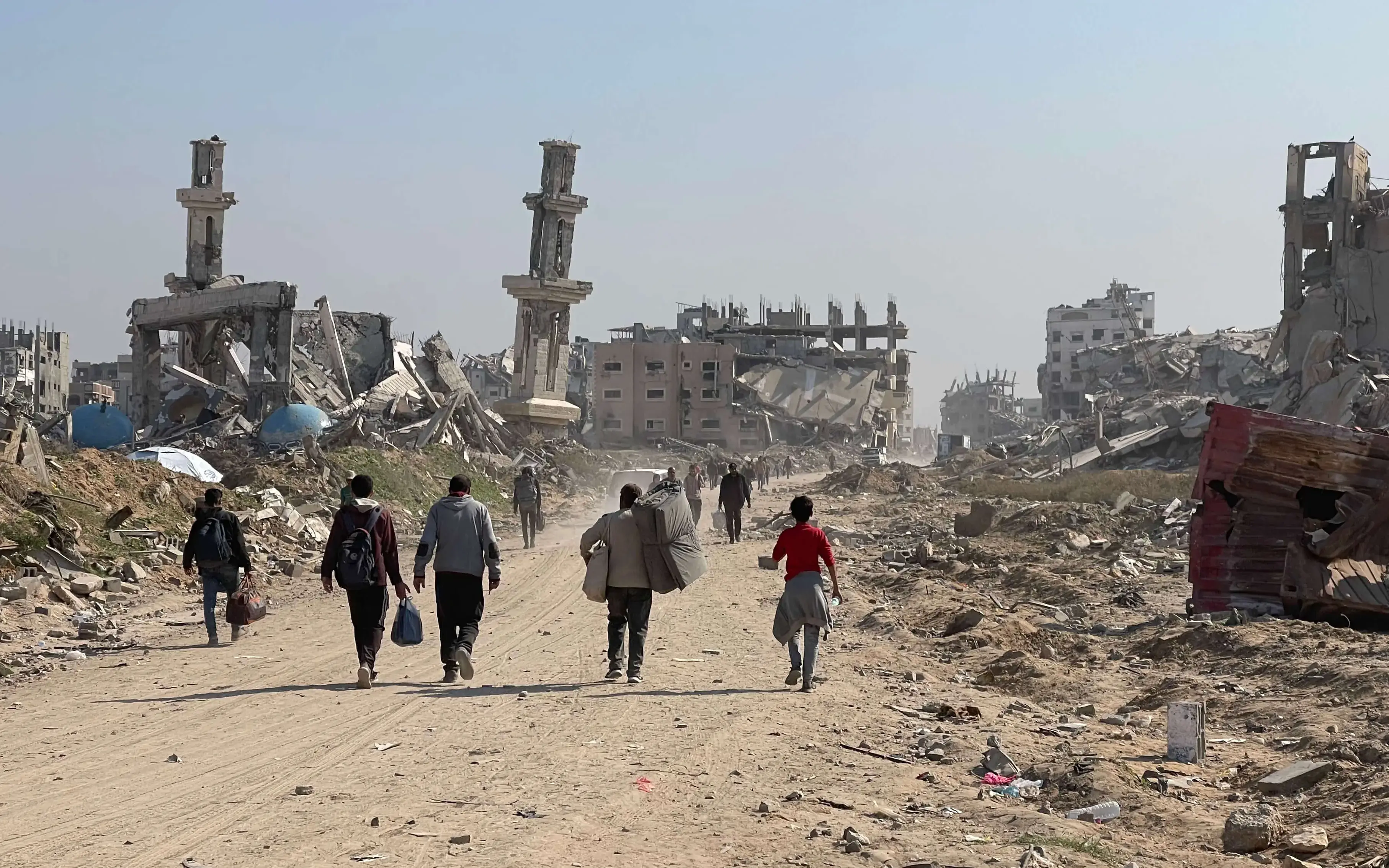Salam Almaslamani: "Where is international law in the face of the brutality being perpetrated in Gaza?"
The former president of the Palestinian Community of Catalonia calls on the international community to react to the genocide against the Palestinian people.
The humanitarian crisis in Gaza seems to have no end. The brutal Israeli bombing of Al-Ahli Hospital in the city of Gaza, where at least five hundred people are believed to have died, is the latest episode in a spiral of violence that is bleeding the Palestinian people, subjected to an occupation plan that has been ongoing for over seventy-five years.
The Palestinian community in Catalonia is experiencing the situation with immense distress and concern. Almost everyone has lost acquaintances in Gaza these days. And the situation seems like it could get even worse with the announced major Israeli invasion. We talk about this with Salam Almaslamani, a member and former president of the Palestinian Community of Catalonia, one of the organizations that has called for a large unified demonstration this Saturday in Barcelona under the slogan 'Stop the genocide in Palestine.'
How are you experiencing the situation in Gaza from a distance?
Very badly, it's truly a horrible ordeal. All my friends here who are from Gaza have lost some family members or loved ones these days. All of them, without exception, have not been spared. When I call them, they don't even have the strength to talk or to report on the hell that is happening there. We are absolutely devastated. Because they are not only killing people in Gaza, the genocide is not limited to Palestine but also affects the entire diaspora.
Have you been able to communicate with Gaza?
Mostly with the West Bank, because it's much more difficult with Gaza. However, the people of Gaza are finding ways to communicate with the outside world. It's what they say, the less you have, the greater your imagination to move forward. For example, we know they are using car batteries to charge their mobile phones and avoid constant power cuts. People are very afraid, very anxious, and angry. But it's an anger that does not stem from hatred because we all know that hatred is not the solution.
What do you think of the current situation?
We want to make it clear that we do not agree with the killing of anyone, no matter where they are from because no one has the right to take another person's life. This is and has always been Palestine. However, we also believe that everything that is happening is not being explained well by the media.
In what sense?
First of all, this is not a conflict, and it's not balanced. Israel has one of the most powerful armies and secret services in the world. That's why we believe the narrative needs to change, and the situation needs to be better contextualized to understand what is happening. Hamas is constantly referred to as a terrorist group, but has anyone explained in what context Hamas was born in 1987?
The situation goes way back.
All of this stems from the brutal policies that Palestinians have suffered for many years in our own home. It is a reflection of many years of suffering, seventy-five years of occupation, brutal episodes like the Nakba, Naksa, unfulfilled agreements, and the blockade of Gaza... What kind of reaction do they expect from the situation in Gaza? How should those living in the world's largest open-air prison, with two million people crammed in, react? That is Gaza.
Is the focus being missed in explaining what is happening?
Absolutely, people should question what project Israel is pursuing in Palestine. The real situation is not being reported or analyzed. We are talking about a colonial project that wants to claim territory that is not theirs and wants to send the people who live there to the Sinai desert. And that is exactly what they are doing, an ethnic cleansing of the Palestinian people to make their Greater Israel project possible. In what language do the Palestinians have to speak for this to be understood?
Did you expect this brutal reaction from Israel to Hamas's attack?
I insist, this is not recent. Gaza has been suffering indiscriminate bombardments for many years. I, in fact, do not believe that Israel was unaware of Hamas's attack. I think everything was well-prepared and organized, and they cared little about sacrificing Israeli lives to strengthen their project and take another step in their occupation plan.
Regarding Hamas's attack, I interpret it as a desperate call for the world to do something. I no longer know what the outcome will be. The Oslo Accords have not been fulfilled. What solution do the Palestinians have if we are victims of ethnic cleansing carried out with complete impunity?
Can the current situation be compared to the Nakba?
Certainly, it can be said to be a third Nakba. The first was in 1948, after the creation of the State of Israel; the second in 1967, which we call Naksa, with the Six-Day War; and now, it is the third. Israeli authorities have made it very clear that their goal is to eliminate the Palestinian people and reduce Gaza to ashes. The Israeli Minister of Defense himself has called us "human animals"... Where is international law in the face of the brutality being perpetrated in Gaza?
How do you see the reaction of the international community to all of this?
I can only feel profound indignation because the reality is that there is no response to what is happening. In this matter, you cannot be neutral because it is equivalent to supporting the aggressor. Those who support Israel's actions must be denounced, starting with Ursula Von der Leyen, who cannot align so explicitly with one side. Especially when there are demonstrations happening all over Europe to protest against what Israel is doing.
How long do we have to allow all of this? People are mobilizing, and they must continue to do so because governments will only act if the streets demand it. In South Africa, it was international pressure that changed the situation. It's the only way out.








Add new comment